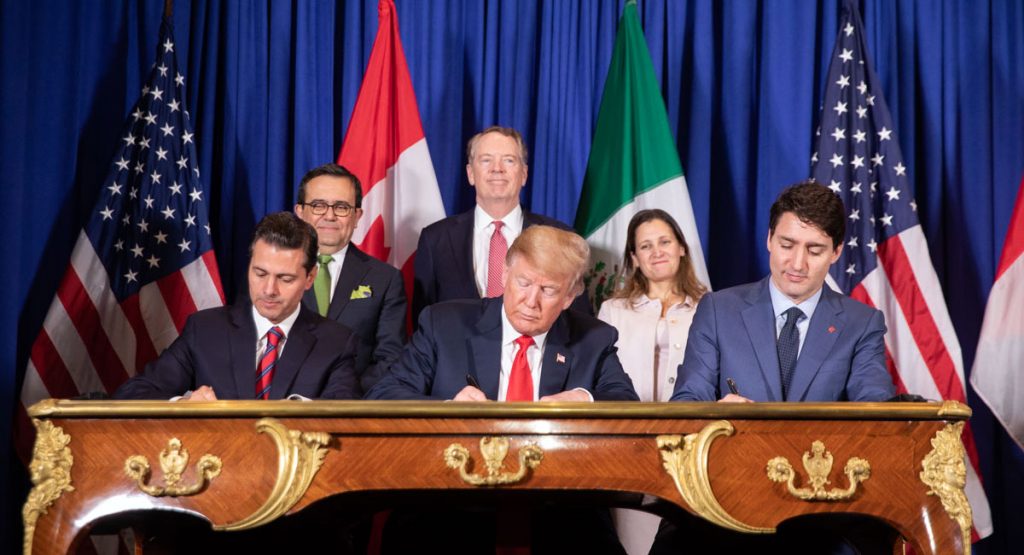A dispute panel has sided with Canada and Mexico in their dispute with the U.S. over rules to calculate the regional content for vehicles under the U.S., Mexico, Canada Agreement (USMCA).
In late 2019, the new trade deal conceived under the leadership of President Donald Trump passed a vote in the House of Representatives to replace NAFTA. Under the new trade deal, the amount of North American content used in the manufacturing of cars and trucks to be eligible for tariff-free imports in the continent jumped from 62.5 per cent under NAFTA to 75 per cent.
Mexico and Canada had challenged how the U.S. calculated the regional content requirement and suggested that the U.S. interpretation could impact the ability of domestic car manufacturers from qualifying for duty-free trade across North America.

The ruling means that the U.S. must use Mexico and Canada’s methods to calculate regional content or face retaliatory tariffs, The Wall Street Journal reports.
Read: U.S. Passes Trump’s USMCA Trade Deal To Replace NAFTA With Big Impacts On Auto Industry
Speaking on the matter, Canadian trade minister Mary Ng said the country “is glad to see that the dispute settlement mechanisms in place are supporting our rights and obligations negotiated,” adding that the ruling reaffirms “our understanding of the negotiated outcome on the rules of origin for automotive products.”
“This is excellent news,” added Mexico’s former economy minister Tatiana Clouthier. “That helps the entire automotive industry in the North American region enormously.”
Mexico and Canada have long argued that if a “core part” of a vehicle, such as its engine or transmission, has 75 per cent regional content, then the USMCA allows the number to be rounded up to 100 per cent when calculating the requirement for an entire car’s regional content. The United States says that “core part” content should not be rounded up to 100 per cent, Reuters notes.
Spokesperson for the United States Trade Representative’s office, Adam Hodge, said the decision is “disappointing” and that the U.S. will “engage Mexico and Canada on a possible resolution to the dispute.”




